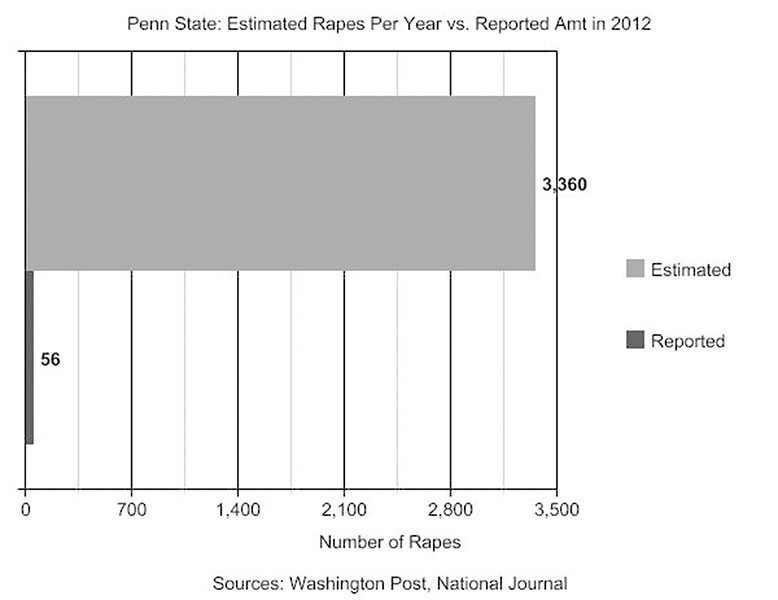Colleges must punish rapist with serious consequences
January 31, 2015
You know, if and when I go to college, I really wouldn’t like to get raped. Therefore, my future college should have a good record when it comes to dealing with sexual assault. Unfortunately, as a high school student, I haven’t been presented with certain information that can help me learn which colleges are and aren’t consistent and vigilant with the protection of their students, in all situations.
Once you look at the information that isn’t directly handed to students, things become suspicious.
According to the Washington Post, in 2012 the highest number of reported sexual assaults at an individual college was 56. This was from Penn State, a university with over 95,000 students. That means that a minute 0.06% of students reported a rape, an incredibly unrealistic number.
Congressman Pat Meehan, from Pennsylvania, was quoted in the National Journal as estimating that for a college of 10,000 students may have “as many as 350 rapes per year.” And Penn State’s number was the highest reported nationally. Something seem a little off?
Obviously, rape at college is highly underreported, and a lot of it has to do with the college’s actions, in addition to rape culture that’s deeply ingrained in our society. It may be as simple as there being no place to report the assault. Often, hospitals on campus may not have rape kits. College students don’t always have the resources to travel much, either, and so simply may not be able to get their body checked. Students also may be afraid to go to the police, who may not listen or take action.
Or, perhaps, stigma or shame about being raped makes a survivor too afraid or embarrassed to report it. Today’s culture seems to encourage the idea that people “ask for” rape (going against the definition of the term!), or for many men, that they “can’t be raped” because men are “always interested in sex.”
But the one of most discouraging things that colleges do that prevents students from even wanting to report a rape is this: they never actually do anything about it. Emma Sulkowicz, a student at Columbia University, gained fame for her performance art piece protesting Columbia’s protection of her rapist. Since the beginning of the school year, Sulkowicz has been carrying her dorm mattress everywhere she goes on campus until the man who assaulted her is expelled.
An article in New York Magazine reported, “The mattress protest is a way for Sulkowicz to both refuse him that anonymity and turn the situation on its head.”
The mattress as a symbol of the weight she and other rape survivors carry— those who must struggle through stigma, silence, and apologists who find petty excuses for a serious crime. Sulkowicz has gained much support from other survivors and supporters. Passerby often help her carry the mattress, which is not against the rules of the performance. They’re called “collective carries.”
And yet Columbia University still boasts countless tales of rape survivors who have never seen justice, twenty eight of whom, according to the New York Magazine, have signed a 400-page Title IX complaint. While the Columbia claims in a handout to be “dedicated in [their] efforts to prevent, correct and discipline egregious and unlawful harassment,” this has not shown through in their actions.
Such inactivity is a recurring trend throughout many colleges in the U.S. According to the Huffington post, 2 out of 3 rapists that are found guilty (not counting the many more who are not) will not even be expelled from their school. They’re more likely to simply get suspended, or have some other consequences.
Obviously, as is reflected by their actions, most universities consider their establishments to be places suitable for sexual assault.This really isn’t okay. While, yes, most college students are young adults and are known for their partying and alcohol drinking, that doesn’t excuse the fact that rapists are less likely to ever be properly punished.
The public needs to take a stand to combat rape culture, because as society is now, sexual assault is constantly ignored or underrated. Colleges, being a place of education, must teach their students that rape is not okay in any circumstance, not just by telling them, but by properly punishing, i.e. expelling, those who sexually assault others.





